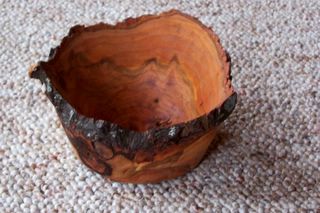In July TWW answered the Countryside magazine question of the month. Below is the answer. Your task is to figure out what the question was. The text below is what was sent to Countryside using a fake name instead of TWW and appears in the current issue. Creating this post was a test of the Google document feature and it appears the feature works.
Moving to the country means lots of decisions. You have needs to meet, make some assumptions about the world, have some values or criteria to judge options against and then stir all this into decisions. Our failures though small in moving to the country came from places where we were ignorant of our needs, assumptions or values. Decisions on how to use your resources of time and money to meet needs decides success or failure in moving to the country. Below is what we learned along the way.
Since full disclosure is in style I should mention we fit into the category of pensioner used in the book New Pioneers by Jeffrey Jacob. In his study based on a survey of Countryside readers about 18% of people living in the country were pensioners living on retirement income. While we are not 100 % pure homesteaders some of what you find below could still apply to your situation.
It’s best to learn how you meet your needs with your time and money while still in the city. To know where your time goes you need to record how you spend it.
Another part of time management is to make lists of what needs doing. Some things you do completely yourself but often you need supplies.
Keep track of how and where you meet your needs for supplies or services. Many of the needs will move to the country with you. Next is one way of you can begin compiling a list of needs.
Take a big piece of paper and draw a circle in the middle labeled ‘my homestead’. Next start listing everything you can remember that goes into your homestead (energy, food, water, etc). Put arrows on the items pointing into the circle. Also list everything you can remember coming out of the circle (wastes, etc) with arrows pointing out. In the country you will need to account for most of what goes in and out of your city homestead. This process helps identify needs you have.
People often assume their needs will be magically met by buying things until they get an unwelcome surprise. We got the latest edition of Countryside a few days after a bridge I had assumed safe to drive on numerous times before moving to the country from Minneapolis surprised people in an unfortunate way. Moving to the country has surprises when your assumptions don’t hold true.
To know where your money goes you also need to record how you use it. The starting point is to read Your Money or Your Life by Joe Dominquez and Vicki Robin.
Finally, although this is not a pop psychology magazine, when you move to the country your mind comes with whether you like it or not. To better understand how your mind works, start doing morning pages. Julia Cameron in the Artist’s Way suggests people take three blank pages of paper and write longhand to dump their minds on paper when they get up in the morning. Doing that for a while will help you decide what you really want.
After you make the big move to the country keep recording how you spend your money. It is easy to lose control when you do something like build a house and buy items you end up not really needing.
Your list of items to do will be long after moving . Here is one simple thing to help keep you sane. Pay attention to your accomplishments. Get a diary book and record how you spend your time. I don’t mean recording how many seconds something takes. Rather, when you cross something off a list of tasks to complete write it in the diary book. The value of this is you then see how much you have accomplished rather than focusing on a nagging list of incomplete tasks.
Finally, here are a few things we learned the hard way because we assumed wrong:
1)The wind may blow differently than you expected. We had a garage and a privy on the land (Countryside Vol 80 #5) for about eight years but learned after we built a house on the land the wind came from the east and the south during the winter more than we ever thought possible and cooled the house. We planted most of the trees on the north side of the property. We had assumed wrong.
2)Darling little animals were a bigger nuisance than we expected. Tree shelters and wire fence cages around trees have helped us keep trees going.
3)Services and goods not available on your land mean you drive. Use your lists of needs to learn where you will meet your needs for medical, pharmacy, hair, or financial services and also types of goods you buy regularly to locate businesses early. We unwittingly split ourselves between two cities and it means extra driving .
4)Deciding where to put a sidewalk or LP tank changes where people can drive a big truck . Though it has not mattered yet, we discovered we do not have a way for a well repair truck to reach the well without moving the LP tank and cutting down some trees. Fortunately, we realized we had decided wrong before we had a crisis on our hands and hopefully have time to fix things.

No comments:
Post a Comment